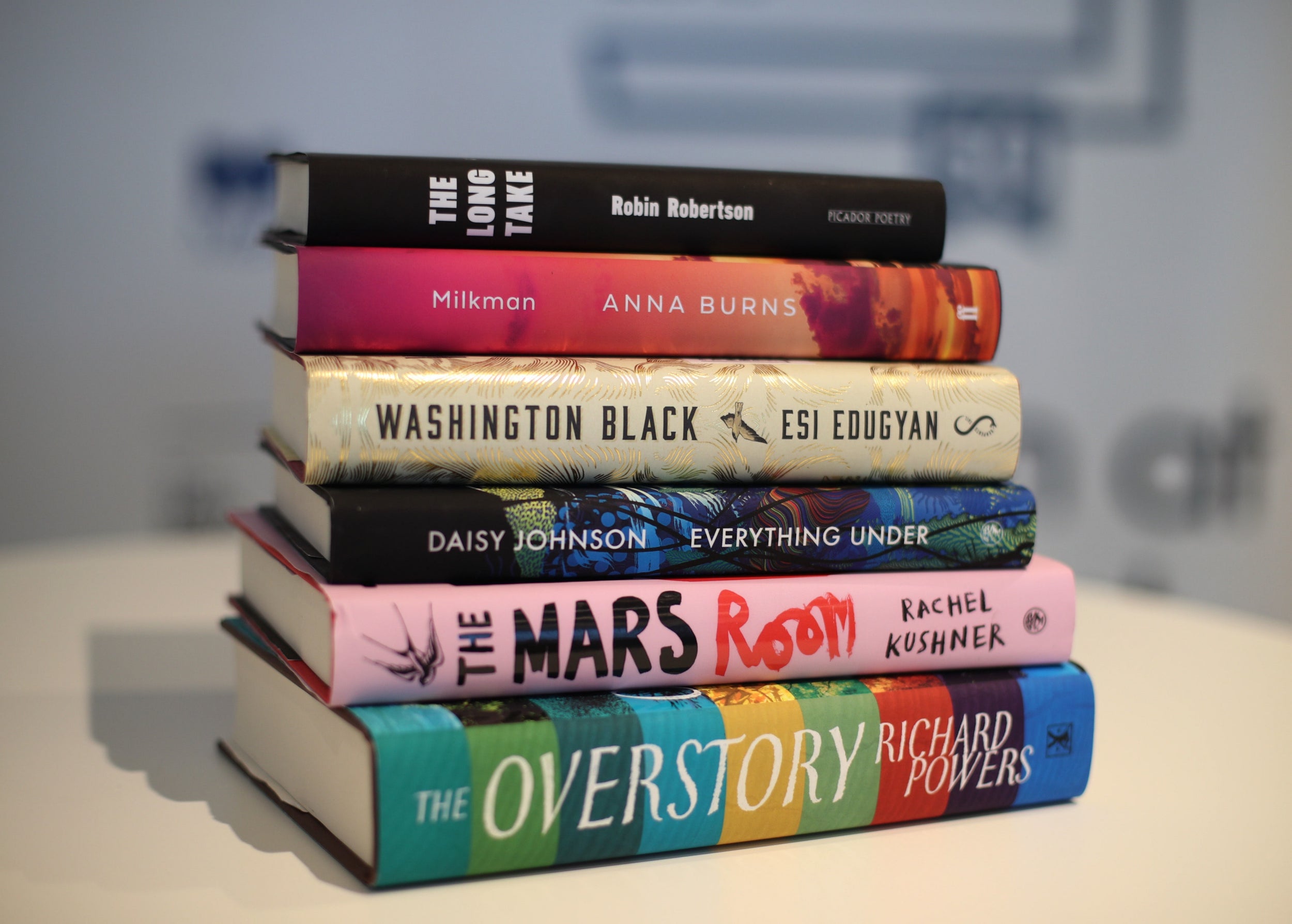Man Booker Prize 2018: the shortlist ranked, with Daisy Johnson set to become youngest ever winner
Ahead of the official winner's announcement, Daisy Buchanan goes through each shortlisted book and decides on her favourite to win

Your support helps us to tell the story
From reproductive rights to climate change to Big Tech, The Independent is on the ground when the story is developing. Whether it's investigating the financials of Elon Musk's pro-Trump PAC or producing our latest documentary, 'The A Word', which shines a light on the American women fighting for reproductive rights, we know how important it is to parse out the facts from the messaging.
At such a critical moment in US history, we need reporters on the ground. Your donation allows us to keep sending journalists to speak to both sides of the story.
The Independent is trusted by Americans across the entire political spectrum. And unlike many other quality news outlets, we choose not to lock Americans out of our reporting and analysis with paywalls. We believe quality journalism should be available to everyone, paid for by those who can afford it.
Your support makes all the difference.There’s something blissfully boring about this year’s Booker shortlist. There’s nothing dull about the books themselves, but after a longlist that was eclectic as it was divisive, the final six picks are consistently excellent, and assured.
I was especially sad to lose Sophie Mackintosh’s dystopian dreamscape, The Water Cure, and most of my favourite readers were stunned that Sally Rooney’s hit Normal People wasn’t featured, either. Still, we’re left with a strong, striking sextet, and while I think that any one would be a worthy winner, I can’t resist doing a little hopeful cosmic ordering and making some predictions, based on nothing more than the books I loved the best.
Here’s my ascending Booker order:
6. The Overstory, Richard Powers – (odds 5:2)
This is the bookies favourite by some margin, but not mine. It’s grand, stylish, pacy and polished, but in my (unpopular) opinion, occasionally there was something about Powers’s celebration of the natural world that felt, ironically, forced and artificial. There’s also a romance I was unconvinced by too. Once you think you’ve spotted a manic pixie dream girl, you can’t unsee her – sorry Olivia! Now that I’ve said all that, this will definitely win.
5. The Long Take, Robin Robertson – (odds 5:1)
Somewhere between a novel and an epic poem, Robertson’s book takes his protagonist, Walker, from coast to coast, exploring a fractured America and the way landscapes and humans are changed by grief and destruction.
I loved the beauty of the language and the ambition of Robertson’s scale, but I wasn’t entirely drawn into his world – perhaps because the pain of the past is still prickling the present so insistently at the moment.
4. The Mars Room, Rachel Kushner – (odds 7:1)
Kushner is a writer of great ability and power and this book is a technical triumph. This story, about Romy Hall, going to prison with two life sentences for killing her stalker, is rich with detail, and constantly subverts the readers’ expectations when it comes to the how and the why. I loved the dark humour, but it didn’t always cut through the unremitting bleakness. Still, this is an important book – Kushner examines poverty and sexism with thoughtfulness and thoroughness, and this deserves to be read widely.
3. Washington Black, Esi Edugyan – (odds 3:1)
I was expecting a bleak, earnest read – after all, this is a story about slavery – but I was taken aback by the many moments of joy and hope in this novel. It is, rightly, harrowing, in places, but the way the characters explore the themes of freedom is what lifts the story off the page, especially in the case of the hot air balloon escape. Edugyan is a vivid and compulsively readable writer whose prose is seamlessly constructed to conceal her enormous ability. The writing seems effortlessly fluid, in a way it only can when words are chosen with great care.
2. Milkman, Anna Burns – (odds 6-1)
I love the idea of a winning novel that redefines what a novel is, and Milkman is upsettingly, structurally strange, but blackly and undeniably funny. The protagonist is an 18-year-old girl, and Burns deftly immerses the reader in an adolescent world by minimising great pains and making what is seemingly small feel enormous. Burns’ book is about rebellion, vulnerability, misogyny and powerlessness. As someone who has been a teenage girl and known them, I felt seen, amused and quite frightened. Lady Bird for Halloween.
1. Everything Under, Daisy Johnson – (odds 5-1)
I’m biased, as this was one of my first favourite books of the year, before the Booker list was drawn up, but I think this has everything I could want for a winner. It’s head spinningly ambitious, with a plot that pushes and pulls, but Johnson executes everything she promises with excellence. It’s a reworking of the Oedipus myth that explores fear, loss and memory – a contemporary story about family and womanhood that remains like nothing else I’ve ever read. I will never forget this novel.
Join our commenting forum
Join thought-provoking conversations, follow other Independent readers and see their replies
Comments